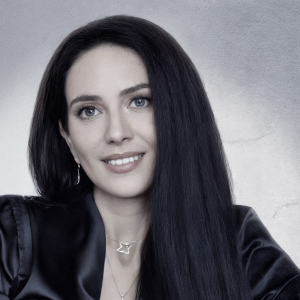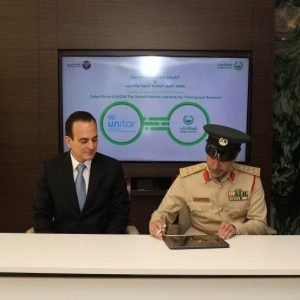Sharjah’s animal market is a well-known place for buying and selling pets, birds, and other animals. Located on the outskirts of the city, it attracts pet lovers, breeders, and traders from all over the UAE. But behind the busy stalls and excited customers, there are deeper stories that many do not see. While the market offers a variety of animals and breeds, concerns about animal welfare, hygiene, and ethical practices continue to arise.
A Bustling Market for Animal Lovers
The Sharjah animal market is a lively place where people can find a wide range of animals, from exotic birds and cats to farm animals like goats and sheep. Many pet enthusiasts visit the market to buy their dream pets, and traders bring animals from different regions to sell. Prices vary based on the type, breed, and health of the animal. Some animals, particularly rare or exotic ones, are sold at high prices, while others are more affordable.
Pet shops in the market display colorful birds, playful kittens, and adorable puppies, drawing in families and children. Some people come just to explore, while others are serious buyers looking for specific breeds. For many visitors, walking through the market is an enjoyable experience, as they get to interact with different animals and learn about various breeds. However, not everything in the market is as perfect as it seems.

The Other Side of the Market

Despite its popularity, the market also has issues that need attention. Animal welfare activists have raised concerns about poor conditions in some parts of the market. Reports of cramped cages, lack of proper food and water, and cases of sick or weak animals have been circulating. Some buyers are unaware of the challenges animals face before they reach the stalls for sale.
Many animals are kept in small cages, sometimes without enough space to move freely. Some traders prioritize profit over animal well-being, leading to unhealthy and unhappy pets. Customers are often unaware of the background of the pets they are buying, and some end up taking home sick animals that require expensive medical care. The situation is worse for exotic animals, which need special care and proper diets to stay healthy. Improper handling of these animals can lead to severe health problems or even death.

Moreover, there have been cases of animals being imported illegally or without proper medical checks. Some animals are transported in harsh conditions, and by the time they reach the market, they are already weak or unwell. While many traders follow ethical practices, a lack of strict enforcement allows some sellers to continue poor treatment of animals without consequences.
Legal Regulations and Oversight
The UAE has strict laws to protect animals from cruelty, and authorities conduct inspections to ensure that traders follow proper guidelines. The Sharjah Municipality regularly checks pet shops and stalls to make sure animals are treated well and kept in hygienic conditions. However, enforcing these rules consistently remains a challenge. Some unethical sellers find ways to bypass regulations, making it difficult for authorities to track every case of mistreatment.
Some traders follow ethical practices and ensure their animals are well-cared for, but others try to cut costs by ignoring hygiene and proper medical care. Customers are advised to check the health of an animal before purchasing and ask for vaccination records and other details. Buyers should also be aware of their rights and report any suspicious activity to authorities. The more customers demand ethical practices, the more pressure there will be on traders to improve their standards.
The Role of Animal Welfare Groups
Animal rights organizations and rescue groups are working to improve conditions at the market. Volunteers frequently visit the area to monitor animal welfare and report any cases of neglect or mistreatment. Some groups also rescue abandoned or sick animals and provide medical care before finding them new homes. Their efforts have helped raise awareness about responsible pet ownership and ethical buying practices.
Educating buyers is another key aspect of improving the situation. Many pet buyers do not realize the responsibility of owning a pet. Welfare groups encourage people to adopt animals from shelters instead of buying from markets, as many pets in shelters need loving homes. Shelters often provide vaccinations, medical checkups, and training, ensuring that animals are healthy and ready for adoption. Choosing to adopt instead of buying can help reduce the demand for unethical animal trading.
Additionally, some organizations conduct campaigns to teach people about proper pet care, diet, and training. These initiatives help create a culture of responsible pet ownership and encourage people to think carefully before bringing a pet home. If more people become aware of the challenges animals face in markets, they may make more compassionate choices in the future.
How Buyers Can Make a Difference
If you plan to visit Sharjah’s animal market, there are a few things you can do to make responsible choices:
- Check the conditions – Ensure that the animals are kept in clean and spacious enclosures. Avoid shops that keep animals in overcrowded or dirty conditions.
- Ask for medical records – Always ask for vaccination and health certificates before buying a pet. A responsible seller should provide proof of medical care.
- Observe the animal’s health – Avoid purchasing weak, sick, or underweight animals. Look for signs of good health, such as bright eyes, clean fur, and active behavior.
- Report mistreatment – If you see any signs of abuse or neglect, inform local authorities or an animal welfare group. Reporting such cases can help improve conditions for animals.
- Consider adoption – Many pets in shelters are looking for loving homes. Adopting can be a more ethical choice, and it often comes with benefits such as vaccinations and basic training.
- Do your research – Before buying a pet, research its breed, dietary needs, and medical requirements. Understanding an animal’s needs can help you make an informed decision.
The Future of Sharjah’s Animal Market
The Sharjah animal market remains a key destination for pet lovers and traders, but there is a need for better regulations and awareness to ensure that animals are treated humanely. With stricter enforcement of animal welfare laws and more responsible buying habits, the market can become a better place for both animals and customers.
Animal lovers, activists, and authorities all have a role to play in improving the conditions at the market. By making informed choices, buyers can help create a more ethical and humane environment for animals in Sharjah’s bustling pet trade. If everyone – from sellers and buyers to authorities and activists – works together, the market can become a model for responsible animal trading, ensuring a better future for pets and their owners alike.
Also read: Qalat Baalbak Restaurant: A Hidden Culinary Treasure You Need to Visit














